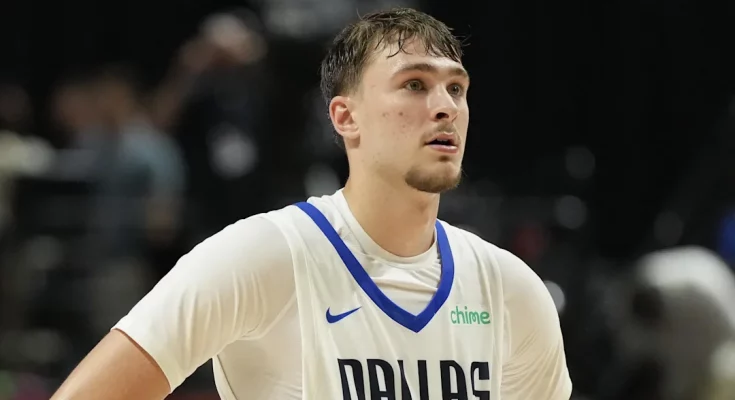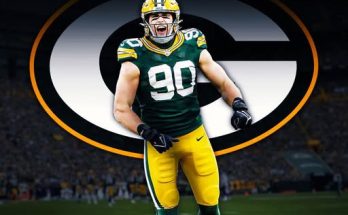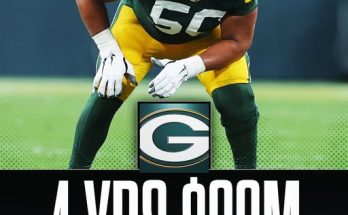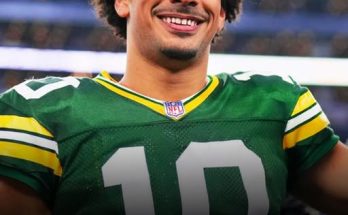The NBA Summer League has always served as a testing ground—a chaotic, high-energy arena where rookies, journeymen, and international hopefuls try to carve out their spot in the league. But even in that whirlwind of competition, one name has stood out more than most this summer: Cooper Flagg. The Dallas Mavericks’ No. 1 overall pick didn’t just meet expectations during his brief Summer League stint—he energized the entire Mavericks franchise and drew praise from fans, scouts, coaches, and analysts for his gritty, all-around effort.
Flagg came into the Summer League carrying immense hype. The first high schooler in years to be granted early draft eligibility, he brought a unique blend of size, IQ, competitiveness, and unteachable instincts to the table. Yet there was always the question—how would he handle NBA-level competition, even if just a Summer League facsimile of it? The answer came swiftly: with composure, hustle, and an edge that defied his age. From the opening tip of his first game, Flagg made it clear he wasn’t just another lottery pick testing the waters. He was already swimming in the deep end.
His box score numbers were solid—averaging just under 15 points, 6 rebounds, 3 assists, and 2 blocks across three games—but they only told part of the story. What drew attention from NBA veterans and media members alike was how Flagg approached the game. On both ends of the floor, he was relentless. He dove for loose balls. He boxed out with force. He talked on defense, directing teammates like a seasoned pro. He hit timely shots, including a few clutch threes. But more importantly, he made winning plays—the kind that don’t always make the highlight reel, but shift momentum and show coaches that you care about every possession.
It’s rare for a No. 1 pick to not dominate the ball or force his way into the spotlight. Flagg did neither. Instead, he flowed within the offense, often acting as a connective tissue between plays. His decision-making—often praised during his pre-draft scouting—translated seamlessly against Summer League defenses. There were moments when he’d set a back screen, pop out for a three, and if it missed, crash the offensive glass with the kind of second effort that can’t be taught. The Mavericks staff took notice, and so did the league.
NBA analysts such as Kendrick Perkins and JJ Redick praised Flagg for his poise. Redick noted during a national broadcast, “Cooper Flagg is one of the few guys I’ve seen come into the Summer League and look like a system player and a star all at once. He’s got that connective instinct, but also the ability to take over stretches when it matters.” Perkins, never shy with opinions, added, “He plays like he’s been in the league for five years. The grit, the hustle, the heart—Dallas got themselves a real one.”
Flagg’s defense also stood out in a big way. While most rookies struggle with rotations and physicality, Flagg thrived. He switched onto guards with confidence, used his length to disrupt passing lanes, and showed a feel for help-side defense that veteran forwards often lack. There were possessions where he’d guard three different players in a single sequence, ending with a block or contested shot that ignited the Mavs’ bench. His defensive communication was often captured on camera—pointing, shouting, directing—and it spoke volumes about his leadership qualities.
Behind the scenes, Dallas coaches reportedly raved about Flagg’s work ethic and ability to take feedback. One assistant mentioned that Flagg asked for extra film study after his first Summer League game, even though he played well. He wanted to understand where he could improve—how to rotate quicker, how to angle his screens better, and how to read double teams more effectively. That hunger, that desire to learn, separated him from the pack. In a league where ego often runs rampant, Flagg’s humility and drive made an immediate impression.
Mavericks head coach Jason Kidd, who observed the Summer League action from the stands, told reporters, “You can tell Cooper has been coached well. He plays the game the right way. We’re not asking him to be a savior—we’re asking him to compete, grow, and bring his strengths to our system. So far, he’s done that and more.”
Flagg’s teammates during the Summer League were also quick to shower him with praise. Ryan Nembhard, the rookie point guard who’s being lauded as another hidden gem, said, “Playing with Coop is easy. He talks, he moves, he always makes the right read. I knew where he was going to be every time. That chemistry came fast.” It’s rare for rookies to build that kind of trust in just a few games, but Flagg’s on-court intelligence sped up the process.
There was one game in particular—a close win over the Clippers Summer League squad—where Flagg’s impact was undeniable. Though he didn’t score more than 18 points, he made a series of pivotal plays in the final five minutes. A chase-down block. A hard-earned putback. A kick-out pass off a broken play that led to a go-ahead three. Each moment reinforced what scouts said about him during the pre-draft process: he’s a winning player. He affects the game in ways that transcend stats.
Social media lit up during and after his performances. Clips of Flagg’s hustle plays, one-handed tip-ins, and emotionally charged fist pumps went viral. Fans—both from Dallas and around the league—started flooding comment sections with declarations like “Flagg is HIM,” and “Mavs found their cornerstone.” Even NBA players took notice. Kyrie Irving, who’s expected to mentor Flagg this season, reposted one of his highlights with the caption: “Young King. Just getting started.”
The praise wasn’t just domestic. International scouts, particularly from EuroLeague clubs and FIBA organizations, praised Flagg’s instincts and fundamentals. His style of play—team-oriented, physical, and cerebral—is the type that thrives in any basketball culture. His ability to impact the game without hijacking it is a trait shared by many international greats.
And yet, the Mavericks chose to shut him down after just three games. It wasn’t because he struggled—it was because they’d seen enough. Enough to believe he’s ready. Enough to understand that continuing to play would only risk injury without adding much more value. Enough to confirm that their franchise’s future is in the right hands. The Mavericks’ front office, led by Nico Harrison, reportedly discussed the decision and unanimously agreed: Cooper Flagg had shown everything they needed to see.
This early praise and cautious approach mirror how teams have handled past stars—like Victor Wembanyama, Luka Dončić, and Zion Williamson. It speaks to the trust the Mavericks already have in Flagg. They don’t view him as just a promising rookie. They view him as someone who can anchor their future alongside Kyrie Irving, Anthony Davis (if the rumored deal gets finalized), and rising talents like Nembhard.
The next step for Flagg will be training camp, where he’ll face stronger, more experienced competition. But if his Summer League showings are any indication, he won’t be outmatched. He’ll likely begin the regular season as a starter or at least a high-usage rotation piece. The Mavericks are building their identity around effort, intelligence, and two-way versatility—all traits Flagg embodies at an elite level for his age.
More than anything, Cooper Flagg’s Summer League effort has injected new life into the Mavericks’ fanbase. After years of playoff disappointment and roster reshuffling, Flagg offers something tangible to believe in—a player who not only has sky-high potential but plays like he’s chasing more than just numbers. He’s chasing greatness, one dive on the floor at a time.
In the coming months, as the Mavericks finalize their rotation and possibly explore additional roster moves, Flagg’s presence will be central. Not just because of what he can become, but because of what he already is: a competitor. A glue guy with star talent. A rookie who doesn’t act like a rookie. In Summer League, he proved he belongs. Now, he’s ready for the big stage.



